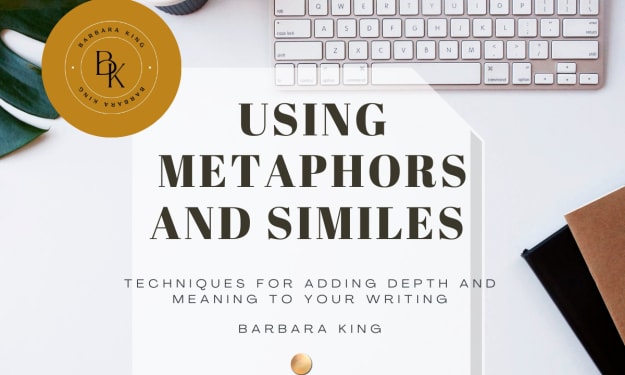Overcoming Procrastination
Strategies for Getting Started on Your Writing

You show me a writer that doesn't procrastinate and I'll show you a liar.
Procrastination plagues us all and might as well be called part of human nature, however, procrastination just may be the thing that is killing your novel.
When you first get that glimmer of an idea, you might dash across the page for a day or two, but then you start to put it off waiting for the right inspiration or the right time to write. Not long before you know it a new brighter and shiner idea begins and the cycle starts again. Rinse. Wash. Repeat. Until you have a computer full of half-started novels that will never see life outside of the short document you brought it to life in.
That sounds miserable.
So here is a call to every writer reading this to find the motivation, whether you like it or not, to get off your butt or onto your butt and finish what you started.
Recognize The Procrastination Trap When You See It
The laundry can wait, the dishes can wait, and social media can wait. The only thing that can't wait is your novel and using "productive procrastination" is still procrastination when you're using cleaning, organizing, or doing other tasks just to put off writing.
Put down the sponge, stop folding that shirt, and go write. Unless something is on fire - it can wait until after you type out 1000 words or so.
Set Clear Goals and DEADLINES
But I don't have a publisher, why would I have deadlines? Well, you're reading this post, aren't you? Obviously, you admit you have a problem and I'm telling you how to fix it and the solution you need is a deadline. Don't run away, it's not as scary as you think!
Sure you can set goals to write 1000 words every day, but life happens and some things get in the way like doctor's appointments (where you should write in the waiting room) or something you just can't push aside to write that day.
So instead set a weekly goal or a deadline so that you have to make it up to yourself before the time runs out.
Your deadline can be something as simple as one chapter by the end of the week or the whole novel drafted by the end of the month. Just make it something attainable and then move it up by a day or two each time as you make better habits.
Create a Writing Schedule
Every morning I wake up, I don't pass Go, I don't get a cup of coffee, I don't even pet the dog - well sometimes I do. I walk from my bed to my computer, I wake up as my computer does and I start typing. I personally write my novels at night, but these articles are first and foremost in my day. I write until I have completed two or three and then I trudge off to get some coffee before doing other administration work for the day.
Have you noticed how my posting has been more consistent? Not the time of the posting, but the fact that I have managed to post an article every single day for the past month and however many days today makes.
It's because I set a schedule. I sit and write at my desk at the same time every morning without fail as if I had a time card to punch because in a way I do.
Set a time to write every day and stick to it every day for a week. Then make it two and then keep going until you don't even have to open your eyes to make it to your desk in the morning because most of the mornings - I don't.
Start Small
Maybe you're procrastinating because you are overwhelmed by the idea of actually writing a full novel, sure it sounded good as an idea but after a few words you realize you need more than 50,000 more of them to reach the minimum for a novel.
So just start with one.
Write 100 words a day if that makes it easier for you to grasp.
This article at this point, just reached 700 words, so 100 is a piece of cake you should be able to do in your sleep. If not, break it down even smaller into 50 words a day. Just make sure to get something down on the page every day.
Break It Into Pieces
Outlining is the procrastinator's best friend, it gives you a task to do without having to have too much stress behind you not knowing what to write.
I outline my novels chapter by chapter and I write a chapter a day. This doesn't mean I have to write my book in a linear fashion, sometimes I scroll through and decide which scene I want to write and just to stop those who will say that that takes the discovery out of writing, it really doesn't. I write one sentence description for each chapter and it goes from there, some of these descriptions turn into two or even three chapters instead, It's just a starting guide, not an exact road map.
Eliminate Distractions
Put away the phone. Turn off the TV, give your partner a new puzzle, and give your children wifi. Respect your writing as if you were going to work, would your partner interrupt you at work to ask you if you've seen their left shoe? If the answer is yes - you might need to have a conversation with them about using the shoe rack AND respecting your writing boundaries.
Make a note of things that distract you while trying to write and the next time you sit down to write learn to ignore them or remove them from your writing space.
Find an Accountability Buddy
If you can't hold yourself accountable, have someone else do it for you. This will be the best and worse decision you will ever make. My partner is my buddy and there isn't a day that goes by why I go to check on them at work and tell them I was thinking of them just to get a text back about using my expression of love as a procrastination effort, or even worse - they withhold snacks from me until I finish the chapter of the day.
It's just the worst, but one of the best forms of motivation out there. I will write a whole chapter in an hour if they say we can go out for boba afterward.
Embrace Imperfection
Your first draft is going to suck, and there is nothing wrong with that and not much you can do about it so you might as well get over it and get used to it.
The magic is in the editing, but you can't edit a novel that hasn't been written.
First drafts are you telling yourself the story for the first time, it may be incomplete, and it may have characters whose names have yet to be discovered, but it'll at least be on the page with nowhere to go but up from there.
Get it out of your mind that you have to get it right the first time, or even the second time, and just focus on getting it done.
Seek Inspiration
Read. Read everything you can get your hands on. Never stop reading. Every time you finish a book, pick up another one and just keep going.
Celebrate Milestones
Buy a special snack every time you finish a chapter. Go out to dinner every time you finish a draft. Celebrate every milestone and you'll find yourself with motivation to move forward so that you can celebrate the next one.
If you really need it - buy a bag of your favorite snacks and only allow yourself to have one at the end of the day if you have finished your goal for that day.
Get something that will really motivate you and don't allow yourself to eat it at any other time.
No writing = no snack. You'd be surprised how much of a motivator it is when it's right there and you can have it - after you get 100 words onto the page.
_ _ _ _ _ _ _ _ _ _ _ _ _ _ _ _ _ _ _ _ _ _ _ _ _ _ _ _ _ _ _ _ _ _ _ _ _
Now, like this article, drop a follow if you haven't already, and then get to writing!
- and then keep writing.
With love,
B.K. xo xo
__________________________________________________
*If you've liked what you read you can show your support by subscribing, pledging your support, or leaving me a tip that directly supports and aids me as a writer.
By joining Vocal+ you can earn more per read on every story you publish on Vocal.
Click my link to start your 7-day free trial today and start earning more for your stories.
_____________________________________________
About the Creator
Elise L. Blake
Elise is a full-time writing coach and novelist. She is a recent college graduate from Southern New Hampshire University where she earned her BA in Creative Writing.






Comments
There are no comments for this story
Be the first to respond and start the conversation.